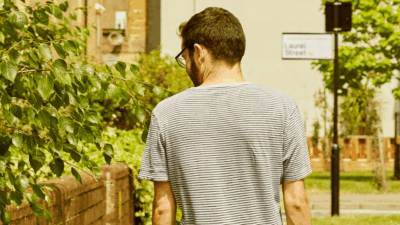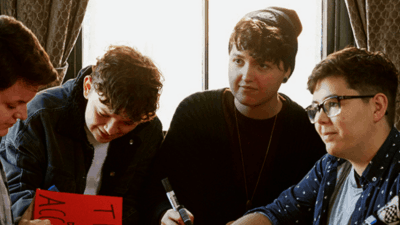
7 things you might not know about conversion practices
Conversion practices are a damaging and degrading practice that tries to change, "cure", or suppress people's sexual orientation and/or gender identity.
It leaves lasting scars on LGBTQ+ survivors – but not everyone fully understands what it is. Below, we look at seven things about the practice that you might not know about.
1. It’s still happening in the UK
Conversion practices aren't a thing of the past. Since conversion practices are still legal in the UK, it can – and does – still happen to LGBTQ+ people today, often preying on those who are most in need of support and community.
2. It can take many forms
The term ‘conversion practices’ covers a vast array of pseudo-psychological practices, from talking therapies – that encourage a person to believe that their sexual orientation, gender identity, or gender expression is somehow wrong, disordered, or potentially ‘sinful’ – to physical abuse, beatings, or the use of so-called ‘corrective rape’.
3. It’s more prevalent than you might think
Conversion practices impact more people than you’d think. In fact, 7% of LGBTQ+ people in the UK have been offered or undergone conversion therapy.
4. It impacts people of all ages
While you might think that only people from an older generation are exposed to conversion practices, this isn’t at all the case. People of all ages can – and often do – experience it.
5. It impacts some groups more often than others
LGBTQ+ people of colour are twice as likely to undergo conversion therapy, trans people are nearly twice as likely to be targeted, and asexual people are also at higher risk.
6. It has a significant and long-lasting impact on survivors
While no study has ever determined that conversion practices are successful, there is significant evidence that it can be fatal, and survivors carry the resulting trauma throughout their lives. A 2024 study found that nearly 1 in 6 (16%) LGBTQ+ young people reported being threatened with or subjected to conversion practices, and this was associated with higher rates of mental health concerns.
7. Seeking support can seem impossible
For those who have experienced conversion practices, speaking out and seeking support can seem impossible. The trauma they’ve endured and the fear of upsetting their families or communities will mean that many will keep their pain to themselves and face it alone. It doesn’t have to be this way – but we need the Government to implement a full legislative ban and provide support for victims and survivors.



